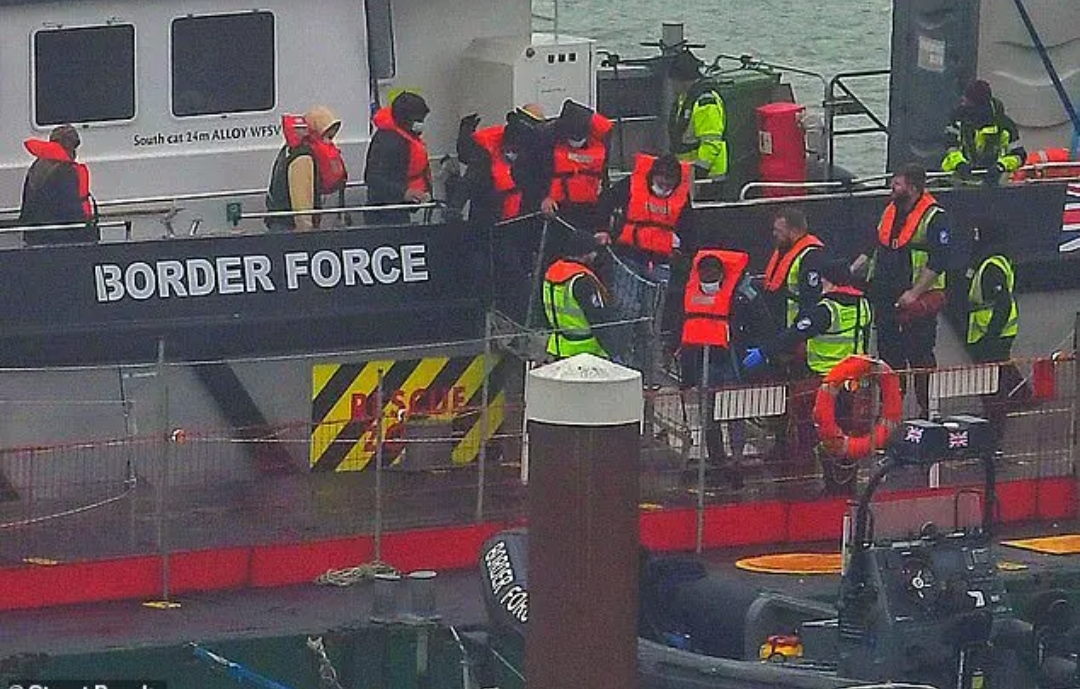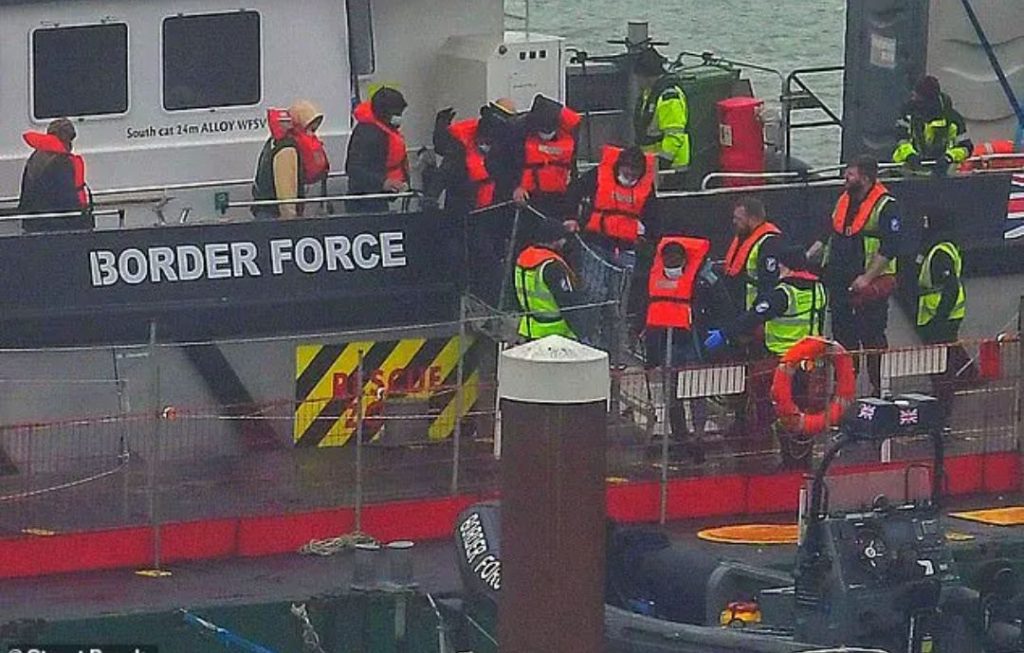French Escort Vessel Accused of Ferrying Migrants Across the Channel: Eye-opening Footage Emerges

A French escort vessel named Minck is purported to have intercepted a migrant dinghy merely two miles off the French coast, subsequently escorting them across the English Channel to British waters. The incident, captured on video, showcases the vessel scouring the waters for migrants on the evening of Tuesday, February 27, 2024. It encounters a dinghy near Boulogne-sur-Mer at approximately 12:40 am the following day, as reported by The Daily Express.

The Daily Mail also reported that rather than delivering the asylum seekers to French authorities for processing, the vessel purportedly changes course, heading towards Dover, Kent, where the migrants are handed over at 3:30 am. The footage, shared by a user known as The Little Veteran, underlines the ongoing complexities surrounding Channel crossings.
On Wednesday, February 28, 2024, despite adverse weather conditions including strong winds in the Dover Straits, a group of roughly 50 predominantly male asylum seekers reached the Port of Dover. They were ushered into Dover harbor by a Border Force catamaran around midday. Kevin Saunders, a former chief immigration officer at UK Border Force, weighed in on the footage during a discussion on GB News, branding the vessel’s actions as akin to a “taxi service.”
Saunders elaborated on the differing interpretations of maritime law between France and the United Kingdom. He highlighted the French perspective, which contends that they are only obliged to assist migrants if they explicitly seek help. According to this interpretation, the French authorities are prohibited from proactively intercepting and returning migrants to French shores. Despite potential disagreements with this stance, it remains the prevailing French approach. Consequently, French vessels are observed shadowing migrant vessels to ensure their safety rather than actively intercepting them.
This incident has reignited debates surrounding immigration policies, border controls, and collaboration between neighboring countries. The Channel, known for its perilous crossings, continues to serve as a focal point for migration attempts. With differing approaches and interpretations of international maritime law, tensions persist between France and the UK regarding the handling of migrant vessels.
Critics argue that such actions by French vessels contribute to the burden faced by British authorities, exacerbating challenges associated with processing and accommodating migrants. Moreover, the alleged facilitation of migrant crossings raises concerns about security and sovereignty, prompting calls for enhanced cooperation and coordination between France and the UK to address the underlying issues driving irregular migration.
As the global refugee crisis persists, incidents like these underscore the complexities and moral dilemmas inherent in managing migration flows. The need for comprehensive, coordinated approaches that prioritize humanitarian principles while addressing security concerns remains paramount. The recent incident serves as a stark reminder of the ongoing humanitarian challenges and the imperative for international cooperation in addressing them.




